Forget Hollywood & Nollywood: In Nigeria, Marriages Cannot End By Signing Of Divorce Papers. Daily Law Tips (Tip 616) by Onyekachi Umah, Esq., LL.M, ACIArb(UK)
“Yes, Clement. I am tired of you and our marriage. Here are divorce papers from my lawyers, sign it and let us go our ways. I am done with you.” This is a common line for divorce of English marriages in movies both in Hollywood and in Nigerian movies (Nollywood). While this line may be a reality and possibility in some countries, in Nigeria it is not; the line exists only in the movies.
Contrary to what movie directors will sell to you, English marriages in Nigeria are never ended by simply signing divorce papers. As a matter of fact, for divorce (dissolution of marriage) in Nigeria, there are no divorce papers or forms to be signed, rather sets of court processes followed by rigorous court hearings in High Courts.
Unlike in the movies, there is no easy way out of an English marriage in Nigeria. Parties (husband and wife) cannot even on their own terminated their English marriage or go to an arbitrator to quicken their dissolution of marriage. It is only a High Court of a state or of the Federal Capital Territory (FCT) that can dissolve an English marriage after hearing from parties and finding that their marriage has broken down irretrievably. This is the law and has not changed.
Generally, there are two types of marriages in Nigeria. Both of them are: Traditional Marriage (also known as native, local and customary marriages) and English Marriage (court, statutory, church and white marriages). Both marriages are valid, lawful and legal in Nigeria with their different benefits, rights and duties.
English marriage is one man to one woman but traditional marriage is one man to more than one wife. Each type of marriage has processes and procedures for conducting it, performing it and even dissolving it, for it to be valid.
By the way, terminating a traditional marriage is easier and entails return of bride price by the family of the bride or a demand for return of bride price by the family of the bridegroom. And, also there is the barbaric ejection of the bride from her home by the bridegroom or the family of the bridegroom. By the way, note that ejection of a spouse from his/her home is now a criminal offence punishable with imprisonment for not more than 2 years or fine of not more than #300,000.00 or both. Mere attempt to eject a spouse is also a crime.
To terminate (dissolve) an English marriage, either of the parties (husband or wife will be a Petitioner) must file a petition in a State High Court or that of the FCT, personally or through a lawyer and have court processes (documents) served on the other party (Respondent). The Respondent will in turn file his response in court, personally or through his lawyer. Then, on an assigned dates both parties will appear in court for the fate of their marriage to be determined by a judge.
A person seeking divorce must first prove that there is a valid marriage and that the marriage has broken down so badly that it cannot be reconciled, recovered, mended and condoned, and that it is impossible to expect parties to continue in the marriage. During divorce cases, there will be several adjournments and the whole case may take more than three (3) years to be concluded. Note that, there is no specific period or duration for any case in Nigeria to be concluded, except for election cases.
After a divorce case is successful, the court will grant a temporal order (Order Nisi) and if after three (3) months there is no objection to such or parties do not reconcile, the court will transform the Order Nisi to an Order Absolute. With an Order Absolute, divorce is complete and parties are free again. They are once again a bachelor and a spinster ready to marry another persons.
I am not unaware of the queer practise, where after one or two sittings of courts in divorce cases, parties meet in person or through their lawyers to fastback their case. In this practice, parties and their lawyers in the pretence of seeking reconciliation, rather seek to mediate for fast divorce proceedings and agreed settlement packages like maintenance and custody of children. In such meetings, both parties agree to some level of conditions that will allow court to divorce them quickly and avoid raising objections and delays.
Also, some judges even accept signed “terms of settlement” from such parties and quickly move to enter judgment divorcing parties starting from an order nisi and then after three (3) months transforms to an order absolute, marking the completion of divorce exercise (proceedings). In a system that puts undue pressure on judges, evaluating judges by number of judgments they deliver over a given periods, some judges don’t mind this queer divorce proceedings/practise, that is unknown to our laws.
Family being the nucleus of society and the most important institution, courts are not quick to dissolve marriages. However, courts will not allow toxic marriages to continue. The court has a discretion to dissolve or refuse to dissolve a marriage after evaluating evidence placed before it.
Marriage is for adults and English marriage is not easy to end in Nigeria. If you believe you can get out of a marriage like getting out of a friendship/courtship, then think again and stop watching too many movies. Until there is an order of court declaring a marriage dissolved, there is no divorce.
By the way, I encourage movie directors, actors and script writers to always engage lawyers to read through their materials and ensure it rhymes with the realities of our society and laws. There is need to avoid portraying no truth or half-truths; movies watchers must learn the true realities of our society through the factual lens of cameras.
References:
1. Sections 1, 2, 33 , 34 and 35 of the Marriage Act, 1914.
2. Sections 2, 12, 15, 35, 54, 56, 58, 59, 60, 61, 67, 69 and 86 of the Matrimonial Causes Act, 1970
3. Sections 9(1), 9(2), 47 and 48 of the Violence Against Persons (Prohibition) Act, 2015 and similar laws across states in Nigeria.
4. The Supreme Court’s judgement (on Order Nisi and Order Absolute) in the case of AMOBI v. NZEGWU & ORS(2013) LPELR-21863(SC)
5. The Supreme Court’s judgement (on how to avoid Order Nisi from being an Order Absolute) in the case of BHOJWANI v. BHOJWANI (1996) LPELR-778(SC)
6. The Court of Appeal’s judgement (on Divorce Proceedings) in the case of BAKAU v. BAKAU (2013) LPELR-22687(CA)
7. The Court of Appeal’s judgment (on Divorce Proceedings) in the case of UZOKWE v. UZOKWE (2016) LPELR-40945(CA)
#SabiLaw
#DailyLawTips
#SabiBusinessLaw
#SabiElectionLaws
#SabiHumanRights
#SabiLawOnBeatFm
#SabiLawLectureSeries
#CriminalJusticeMonday
#SabiLawVideoChallenge
Feel free to reach the author, ask questions or make inquiries on this topic or any other legal issues via onyekachi.umah@gmail.com or +2348037665878.
****************************************************************************************
This work is published under the free legal awareness project of Sabi Law Foundation (www.SabiLaw.org) funded by the law firm of Bezaleel Chambers International (www.BezaleelChambers.com). The writer was not paid or charged any publishing fee. You too can support the legal awareness projects and programs of Sabi Law Foundation by donating to us. Donate here and get our unique appreciation certificate or memento.
DISCLAIMER:
This publication is not a piece of legal advice. The opinion expressed in this publication is that of the author(s) and not necessarily the opinion of our organisation, staff and partners.
PROJECTS:
🛒 Take short courses, get samples/precedents and learn your rights at www.SabiLaw.org
🎯 Publish your legal articles for FREE by sending to: eve@sabilaw.org
🎁 Receive our free Daily Law Tips & other publications via our website and social media accounts or join our free whatsapp group: Daily Law Tips Group 6
KEEP IN TOUCH:
Get updates on all the free legal awareness projects of Sabi Law (#SabiLaw) and its partners, via:
YouTube: SabiLaw
Twitter: @Sabi_Law
Facebook page: SabiLaw
Instagram: @SabiLaw.org_
WhatsApp Group: Free Daily Law Tips Group 6
Telegram Group: Free Daily Law Tips Group
Facebook group: SabiLaw
Email: lisa@sabilaw.org
Website: www.SabiLaw.org
ABOUT US & OUR PARTNERS:
This publication is the initiative of the Sabi Law Foundation (www.SabiLaw.org) funded by the law firm of Bezaleel Chambers International (www.BezaleelChambers.com). Sabi Law Foundation is a Not-For-Profit and Non-Governmental Legal Awareness Organization based in Nigeria. It is the first of its kind and has been promoting free legal awareness since 2010.
DONATION & SPONSORSHIP:
As a registered not-for-profit and non-governmental organisation, Sabi Law Foundation relies on donations and sponsorships to promote free legal awareness across Nigeria and the world. With a vast followership across the globe, your donations will assist us to increase legal awareness, improve access to justice, reduce common legal disputes and crimes in Nigeria. Make your donations to us here or contact us for sponsorship and partnership, via: lisa@SabiLaw.org or +234 903 913 1200.
**********************************************************************************












































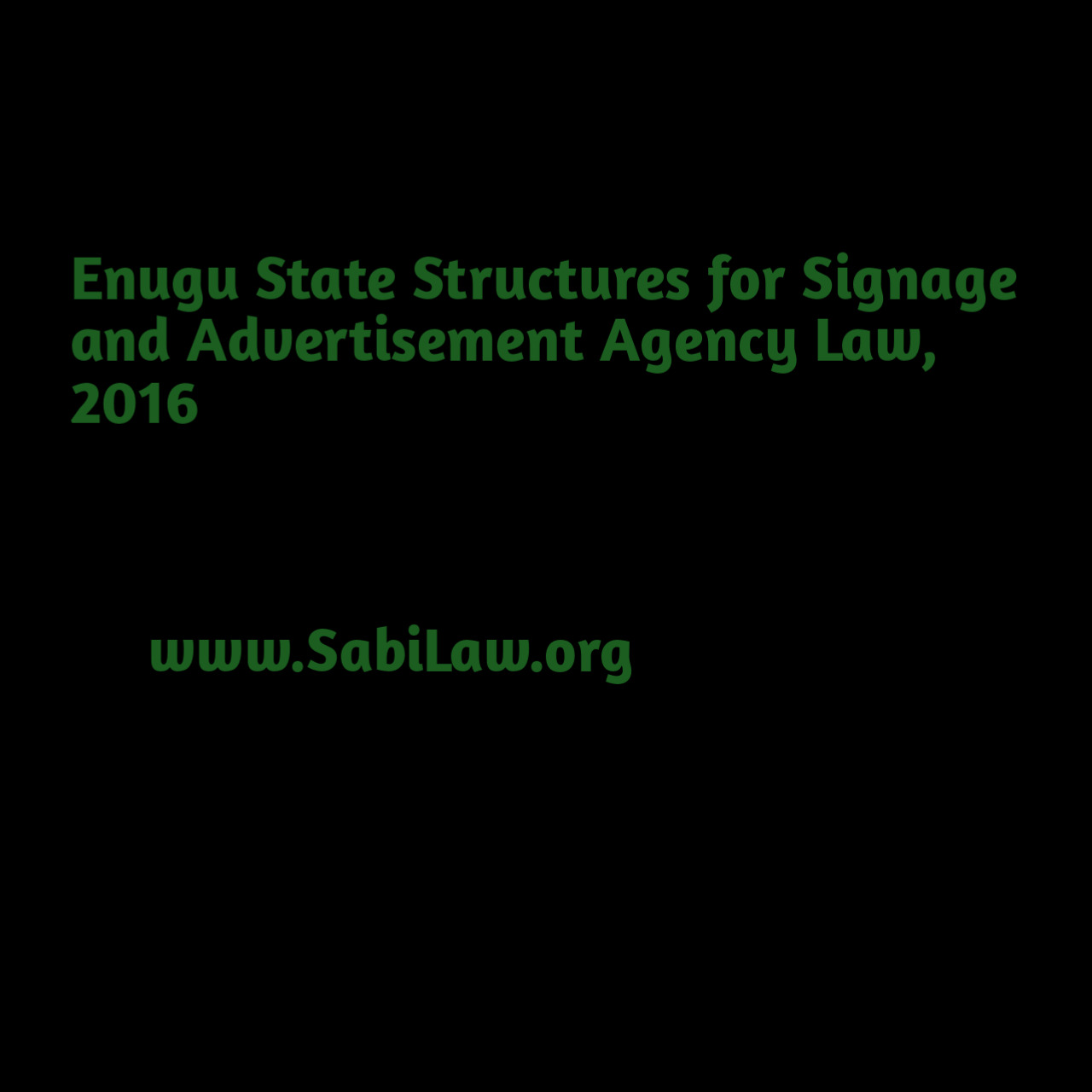

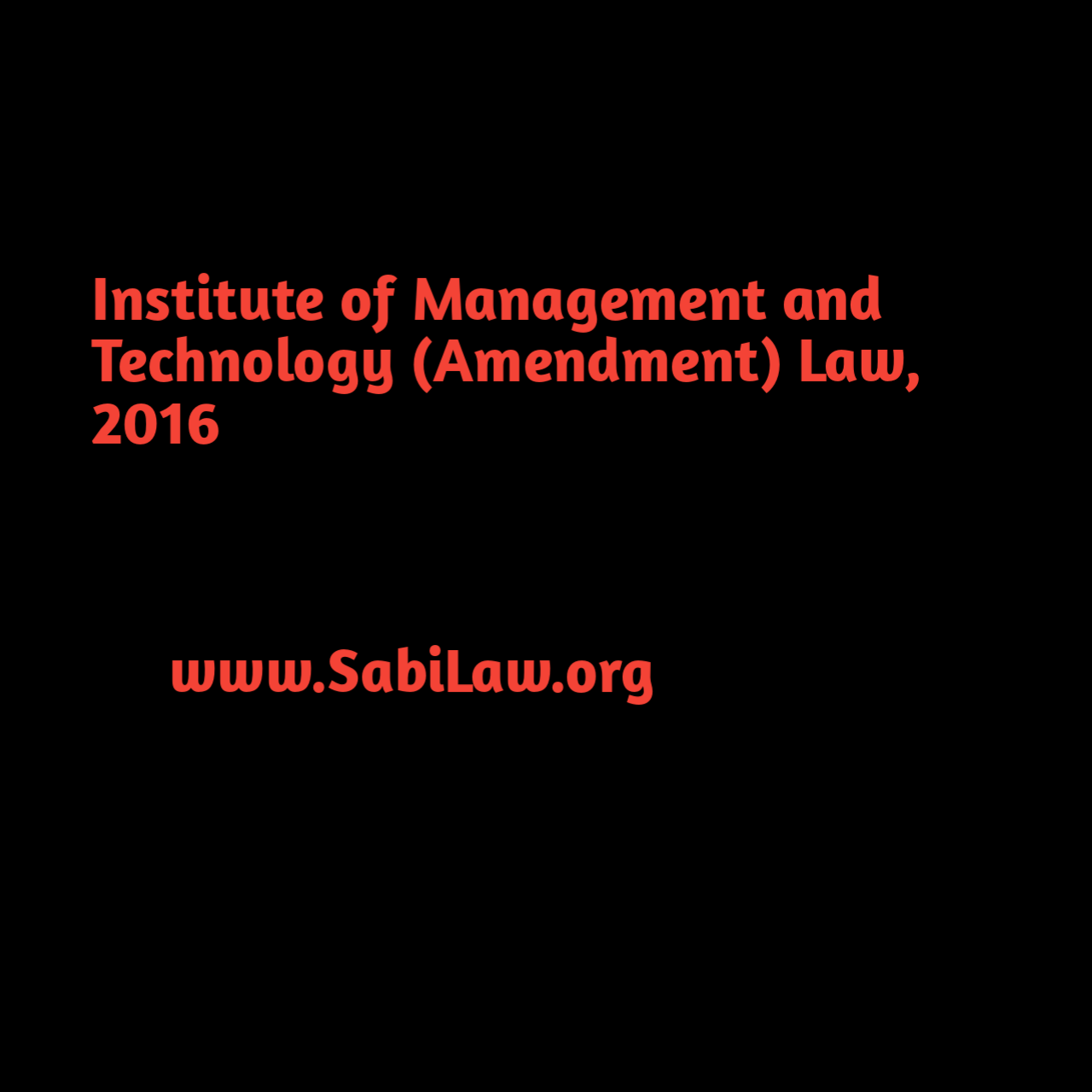
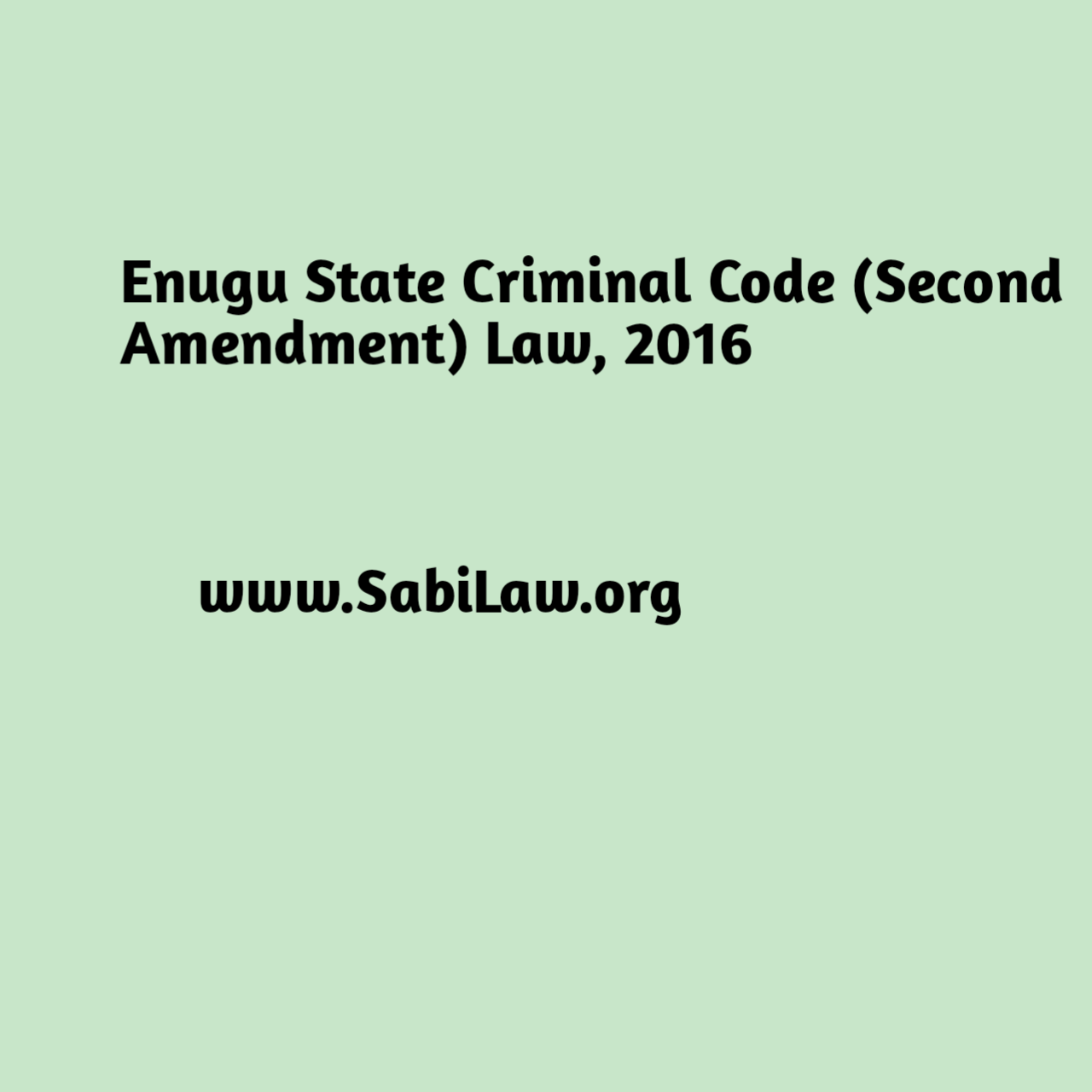

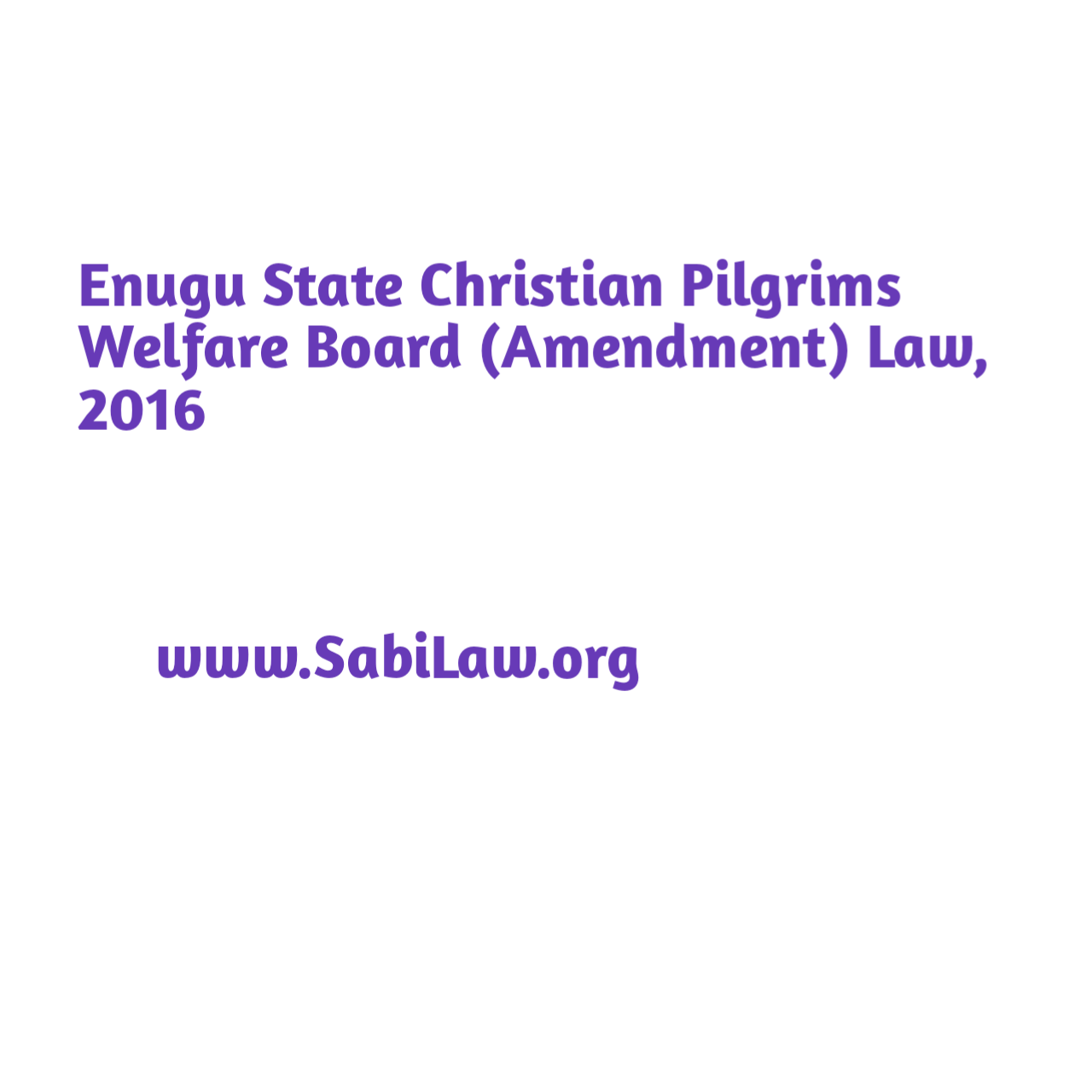

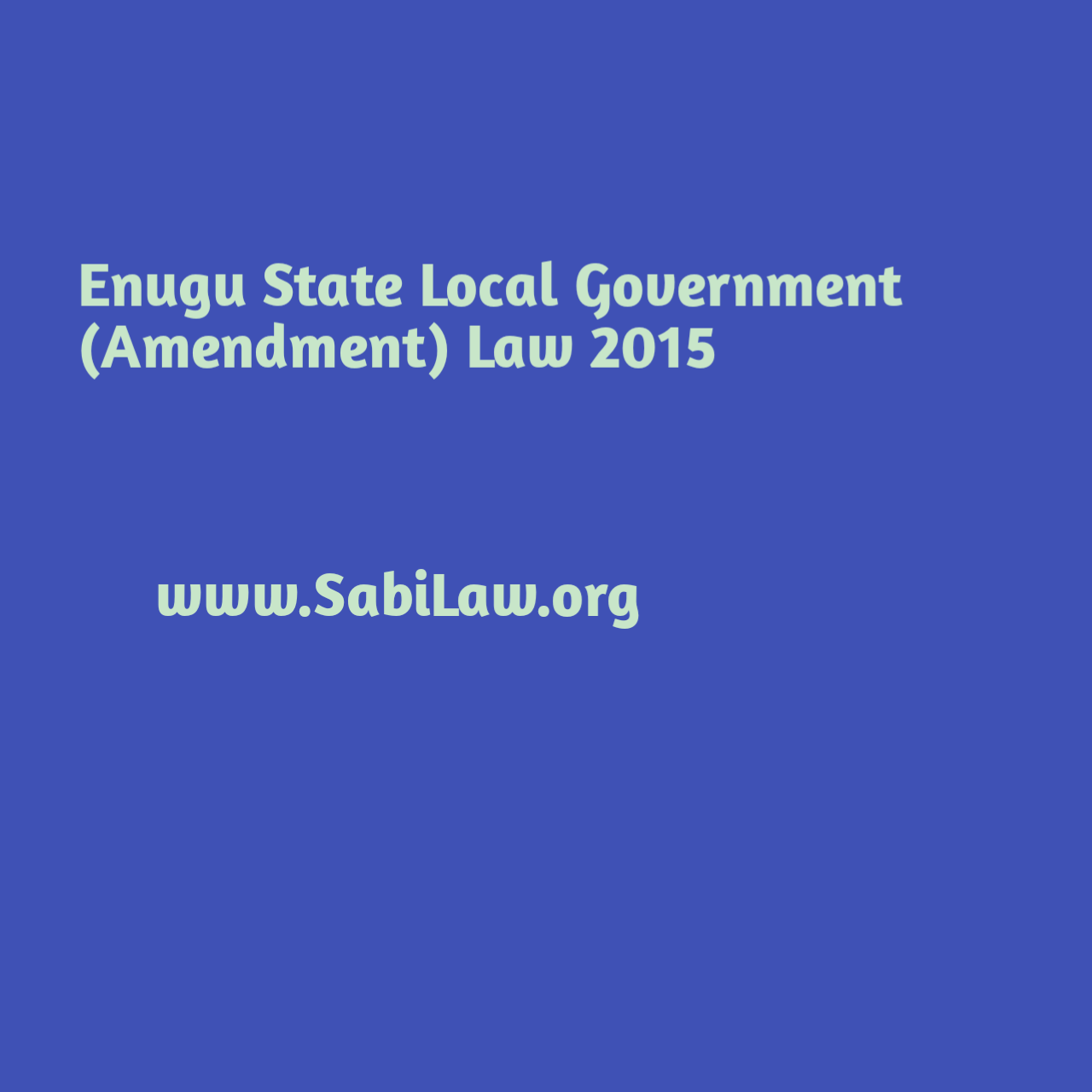
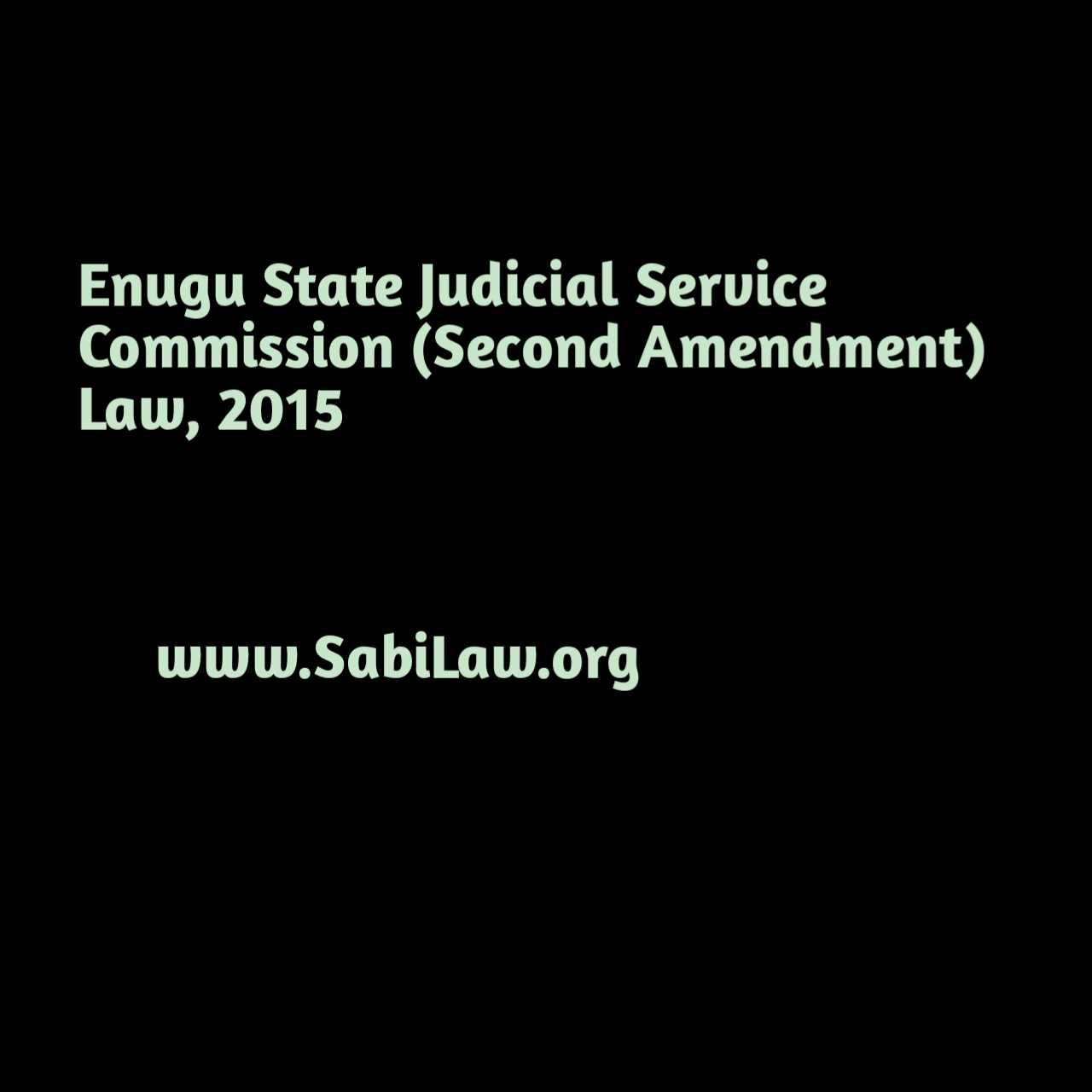
4 Responses